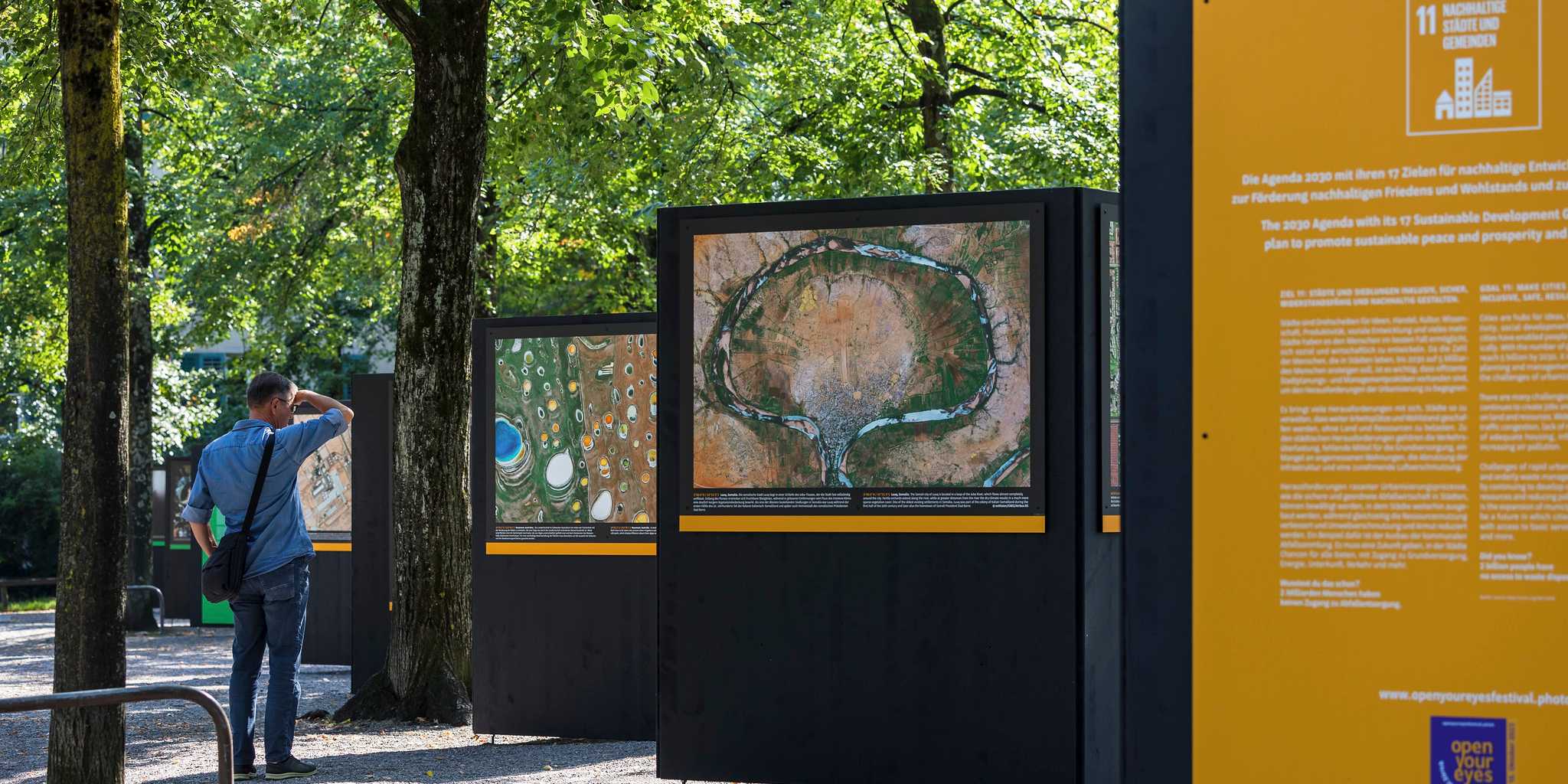
Spotlight on D-BAUG's sustainability goals
Until 15 October 2023, the Zurich photography festival "Open Your Eyes" presents an extraordinary combination of world-renowned photography and groundbreaking research. The 17 UN Sustainable Development Goals (SDGs) provide the framework. D-BAUG is participating with eight selected contributions, demonstrating how the department focuses not only its research but also its teaching on the SDGs.
The "Open Your Eyes" Photo Festival Zurich, created in collaboration with ETH Zurich, presents images by internationally renowned photographers in combination with projects and innovations from the universe of science. Along a three-kilometre stretch, the open-air exhibition invites visitors to engage with the 17 Sustainable Development Goals (SDGs). For each SDG, there is a thematic island with striking photographs, explanations of the development goal and information on scientific projects working towards this goal. The primary objective of "Open Your Eyes" is to to enthrall visitors and encourage them to engage with the pressing issues of our time. D-BAUG is present with eight selected contributions related to five SDGs:
SDG 6: Clean Water and Sanitation
SDG 9: Industry, Innovation and Infrastructure
SDG 11: Sustainable Cities and Communities
SDG 13: Climate Action
SDG 14: Life Below water
How to manage water (SDG 6)
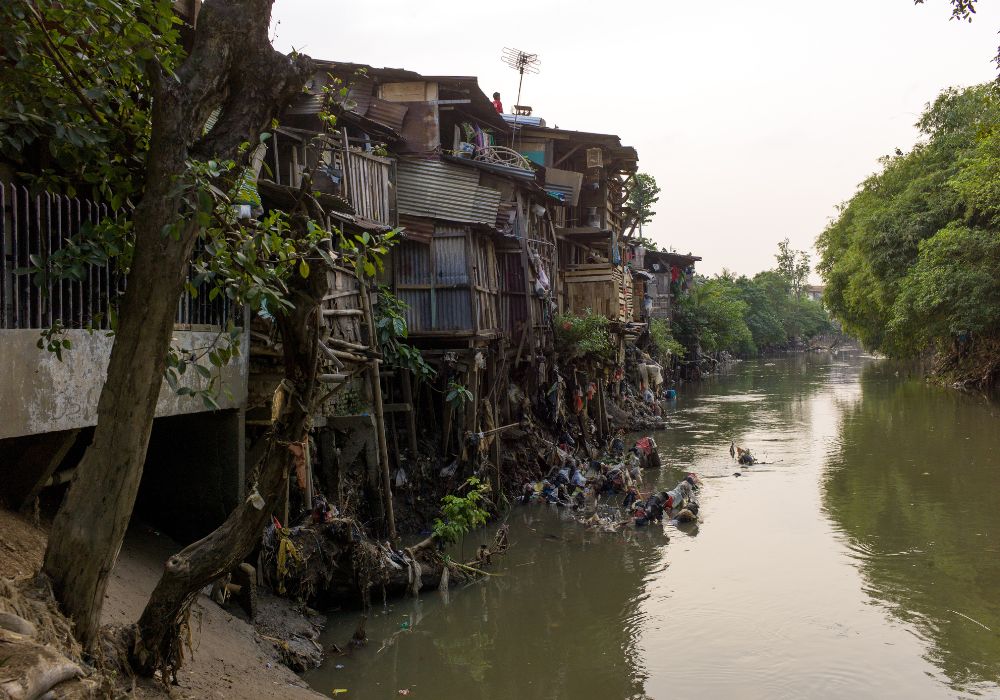
Professor Paolo Burlando became fascinated with water as a young student in Civil Engineering. He understood how vital water is for all human activities – while it’s essential to sustain life on Earth, water also powers agriculture, energy production, industrial activity, and environmental conservation. He also understood how overexploitation and pollution put water resources at risk. Having too much or not enough water can also have dramatic impacts through floods and droughts. Further information
The tech that cleans up our water (SDG 6)
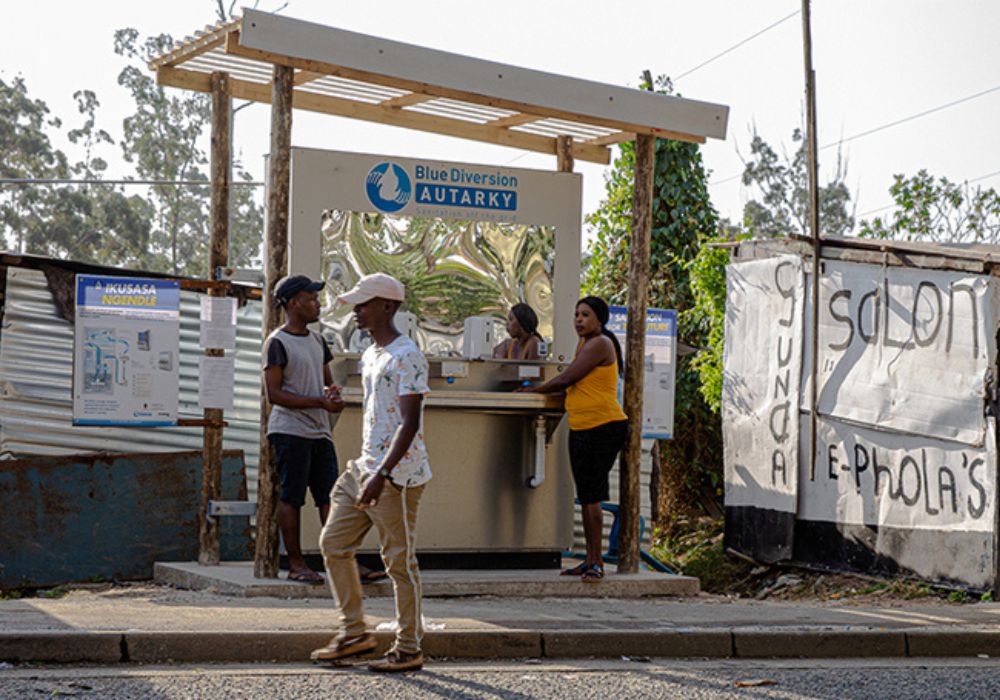
During his undergraduate studies, Professor Eberhard Morgenroth did an internship at the University of Cape Town, in South Africa, which got him hooked on urban water management. Most places on Earth experience severe water problems, and this makes research on the topic extremely important: Eberhard sees it not as a luxury, but a necessity for solving real-world problems. Further information
Housing that doesn't cost the planet (SDG 9)
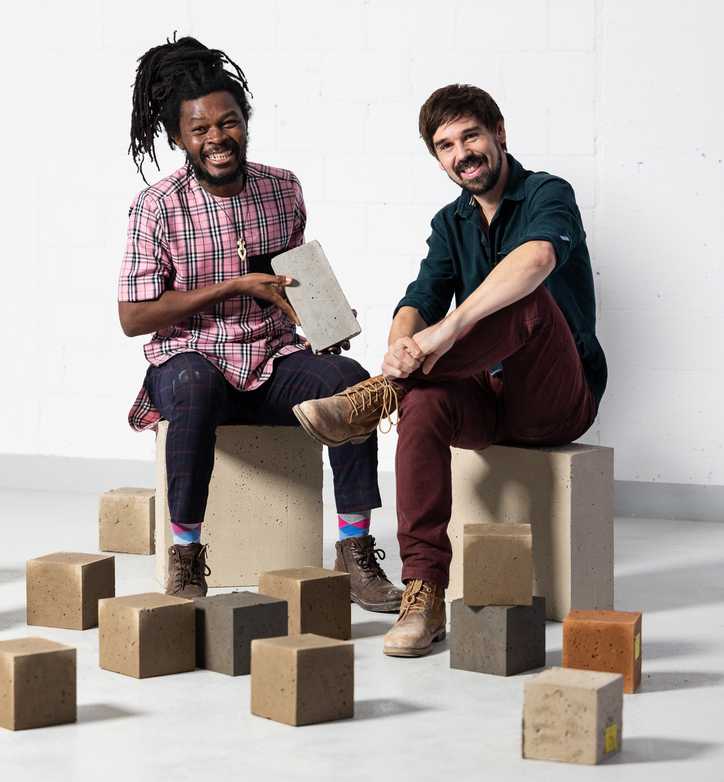
The D-BAUG Spin-off company Oxara was co-founded by Gnanli Landrou, who comes from Togo, and Thibault Demoulin, who comes from France. Both have an academic background in materials science. Growing up in West Africa, Gnanli was involved actively in the construction of earth houses, and this helped to shape his perspective on material use. This type of construction is also common in Thibault’s native region of Brittany, which has a tradition of earth-built housing. Through their experiences and conversations, Gnanli and Thibault discovered a common fascination for earthen materials. Their individual encounters with earth-based construction in different locations converged into a shared appreciation for the unique qualities and potential of sustainable building approaches. Further information
Choosing what is best for the environment (SDG 9)
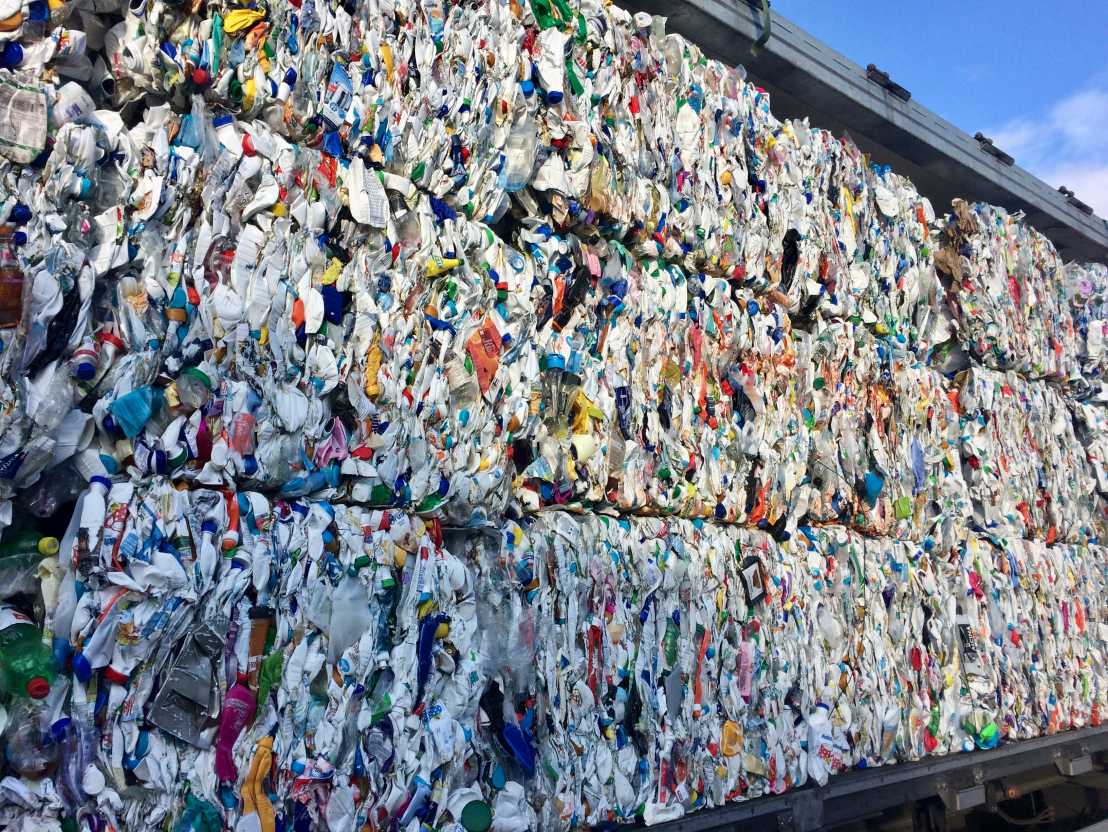
In the early days of her life as a university student, Professor Stefanie Hellweg made sure to attend all courses related to environmental technologies that were available at the time. The passion for environmental issues evolved into an interest in the field of Life Cycle Assessment during her doctoral studies. At that stage, she became attracted to the idea of adopting a systems approach to materials recycling, and carrying out comprehensive assessments of technologies or products across their life cycle, ‘from cradle to grave’. This approach allows for effective decision-making to identify the best environmental solutions to a given problem. Further information
Urban transport, reimagined (SDG 9)
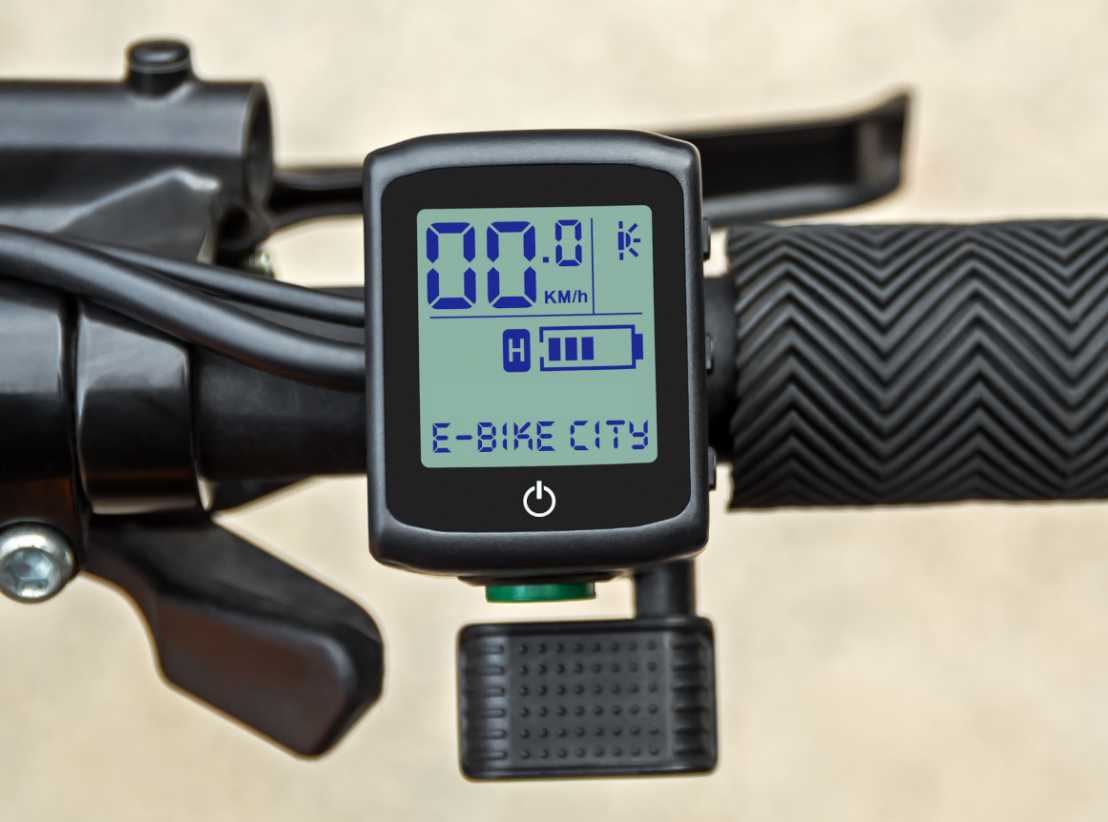
Trained as a civil engineer, Professor Kay W. Axhausen has become an expert in urban engineering. Maps and urban plans mean more to him than the physical features they represent: they display cities as complex systems. By taking into account the social, technical, and environmental dimensions of cities, urban planners like Kay strive to foster community engagement, to ensure efficient management of infrastructure, and to promote sustainability. Further information
Going circular with construction (SDG 11)
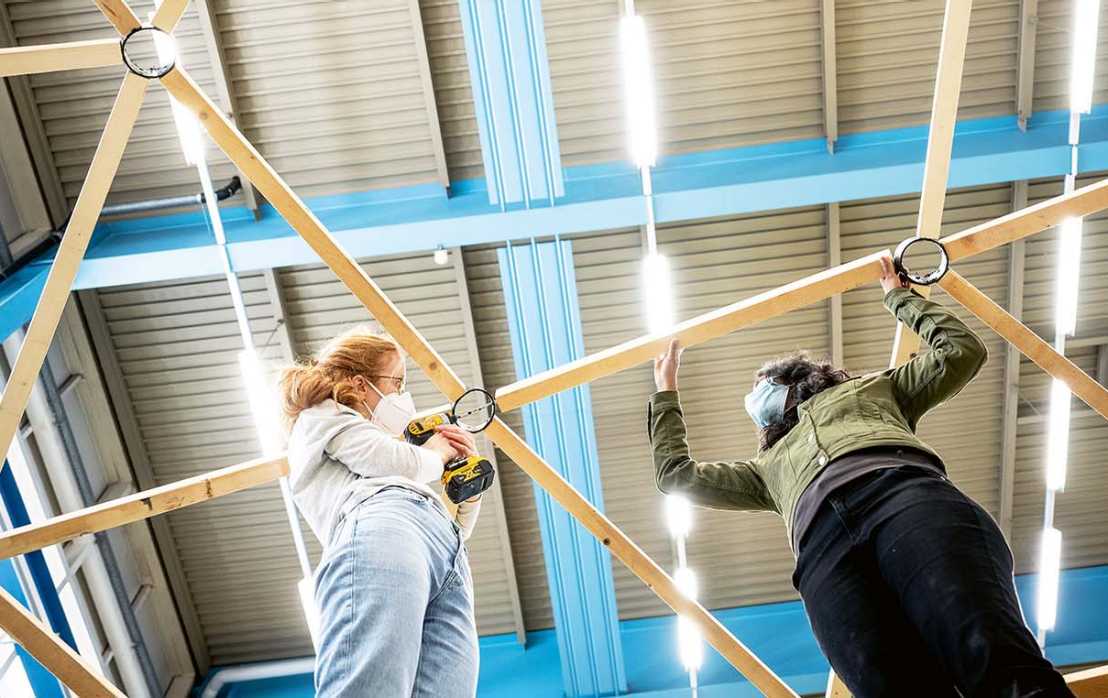
Professor Catherine De Wolf has a multidisciplinary background in civil engineering and architecture. Since she was a little girl growing up, she loved playing with Legos. She would build something, unbuild it, and then build something new with the same building blocks. This made her interested in circular economy principles in architecture and technologies that could foster reuse and regeneration in construction. Catherine was always fascinated by the contrast between the rational side of engineering and mathematics and the creative side of architecture. She decided to combine both. With emerging digital innovation, she is convinced that technologies can be harnessed for the good. Further information
Tracing links from distant glaciers to everyday life (SDG 13)
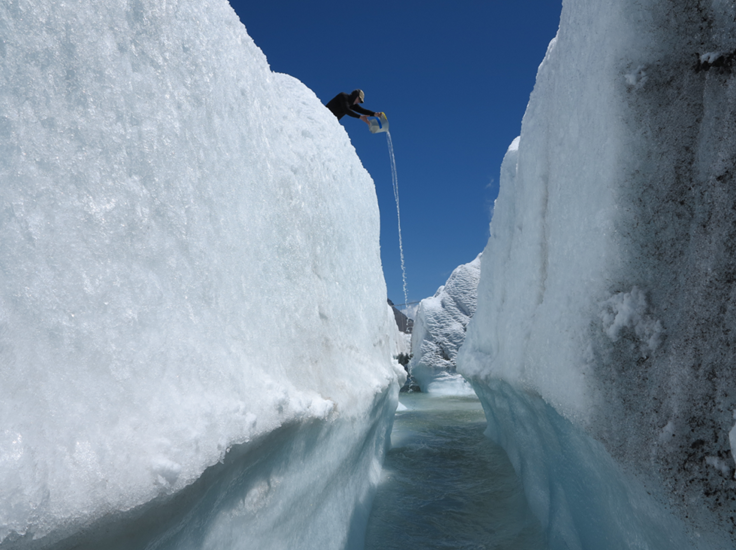
Professor Daniel Farinotti’s fascination for high alpine and polar regions is fuelled by a love for nature, adventure, and science. After training as an environmental engineer at ETH Zurich, he became immersed in research on glaciers and glaciology during his postgraduate studies. Further information
3D-printing a new home for reef life (SDG 14)
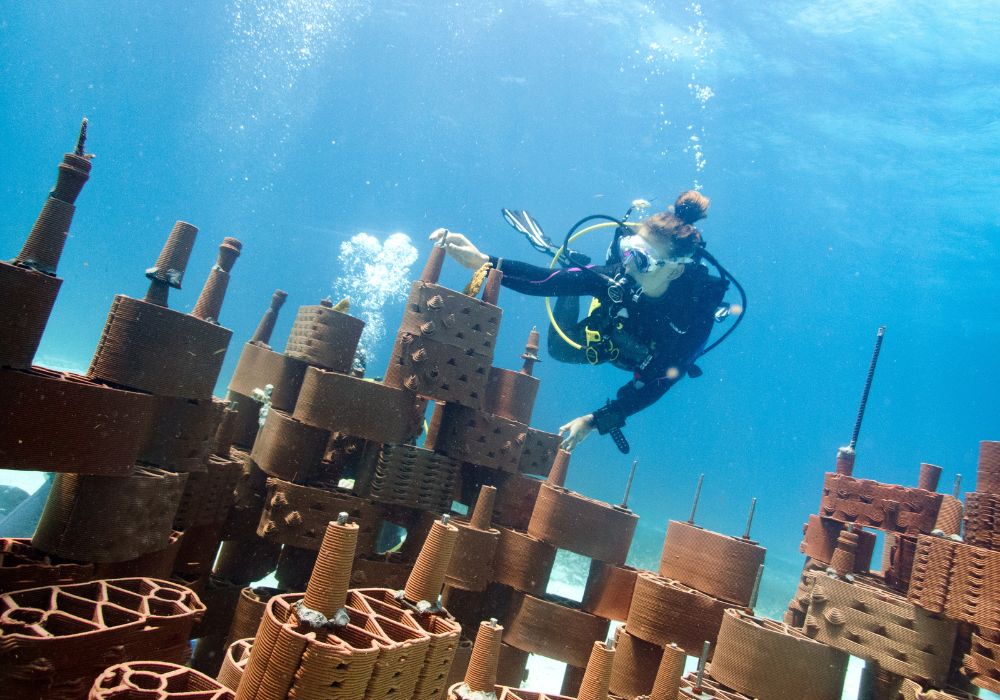
rrreefs is a D-BAUG Spin-Off run by four women – Ulrike Pfreundt, Marie Griesmar, Hanna Kuhfuss and Josephine Graf. Dr. Ulrike Pfreundt is an expert in tropical ocean ecosystems, she understands ocean dynamics from the point of its smallest inhabitants. After completing her Masters in fine arts, Marie Griesmar learned digital fabrication processes to further develop artificial reef structures.
When Ulrike and Marie met at the ETH Zurich, they were a perfect match. Both have a deep connection with the ocean. Their passion has been reinforced with scuba diving; a way to connect with the underwater world on another level. They’ve witnessed the beauty of coral reefs, but sadly also their degradation. This loss of biodiversity motivated them to learn about reef ecology and to find solutions to sustain those fragile ecosystems. Further information